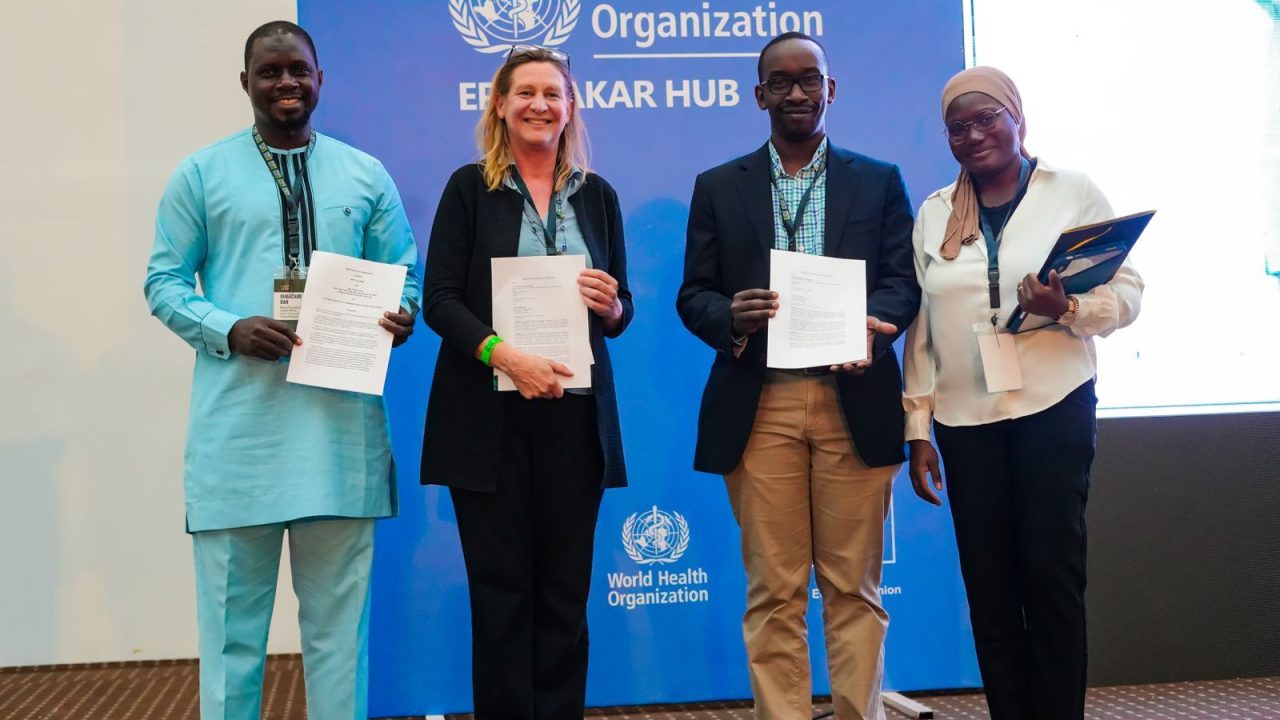At the recent WHO Epidemic Intelligence from Open Sources (EIOS) Global Technical Meeting in Saly, Senegal, data.org, in partnership with the WHO Pandemic and Epidemic Intelligence (PEI) Hub and the MRC Gambia, launched the Epiverse initiative’s focus on implementation in Africa. Originally launched in 2021 with grants from Wellcome and the Rockefeller Foundation, Epiverse is a global collaborative working to develop a trustworthy data analysis ecosystem dedicated to getting ahead of the next public health crisis.
A Launch Met with Enthusiasm
The WHO event was the ideal platform to unveil Epiverse in Africa, bringing together a diverse audience of global health leaders, innovators, and policymakers.
One of the most inspiring outcomes of the official launch was the level of interest from strategic partners eager to join the journey. Representatives from countries across Africa expressed their interest in adopting Epiverse and integrating it into their national health strategies. There was a shared recognition of the need for initiatives like Epiverse to address diverse health challenges like epidemic preparedness and healthcare optimization by reimagining solutions and methods.
Collaborative Opportunities
Beyond the launch, the event highlighted exciting opportunities for collaboration, including:
- Local Data Solutions: Tailoring Epiverse tools for specific regional needs. This can only be done by working closely with local experts and communities to adapt our interventions. And this echoes our data.org approach of thinking globally, but working locally.
- Capacity Building: Empowering regional hubs to ensure local ownership and equipping local professionals and communities with skills to facilitate the Epiverse adoption and maximize its impact.
- One Health Approach: Aligning efforts with other social impact organizations (SIOs) working in animal and environmental health.
These discussions laid the groundwork for transformative partnerships and innovations.
Looking Ahead
Our plan for Epiverse’s next phase of broader adoption is ambitious yet focused: “Roll out the suite of tools in 10 African countries as part of the initial implementation”. To ensure success, we will prioritize local engagement, working closely with government bodies, local data practitioners, and key stakeholders to understand each country’s needs and/or challenges.
We are also committed to localizing training and fellowship programs to build the capacity of professionals on the ground, empowering them to champion Epiverse’s adoption. By equipping local leaders with the knowledge and tools they need, we aim to create a sustainable model for long-term impact, led by those closest to the issues at hand.
As part of this effort, we are excited to announce the launch of the Epiverse Fellowship Program in Q1 2025. This program provides an opportunity for professionals to develop their expertise, collaborate with global peers, and drive the adoption of Epiverse in their respective countries and communities.
Together, we can harness the power of data and technology to address past and present challenges while anticipating tomorrow’s needs. Our shared goal is to create a healthier, more equitable world and foster a resilient, inclusive approach to global health security.
